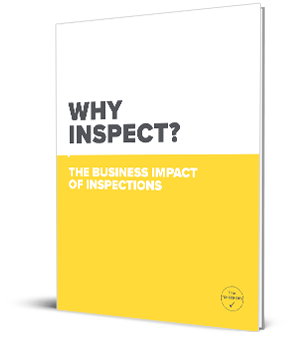Checklists are a necessary part of most professional and personal activities. They may seem simple, so they are easily overlooked, especially by seasoned professionals. It’s sometimes hard for us to accept them as a necessity when we think we already have enough knowledge and skills. But still, using a checklist can help us produce more consistent results and improve our performance. Checklists make the minimum necessary steps explicit. They offer the possibility of verification and instill discipline. They also provide you with peace of mind and help to make sure that you did everything right - step by step.
A good checklist is efficient, precise, practical, and easy to use in difficult situations. Generally, a checklist is best suited for repetitive work that's repeated in a predictable order.
The tools gained from lessons learned in life are key to a successful future both on a personal and professional level. Every decision in life, such as buying a car, entering technical school, or even something as simple as assembling a barbecue grill, requires attention to detail. Checklists are included in each one of these operations to ensure success.
Take something as simple as taking the boat out. You may be in a hurry and forget to check the oil to make sure it is at the appropriate level. However, you need to do a quick inspection of the engine compartment every time.
Checklists include lessons learned. For example, driving a car without engine oil can lead to a catastrophic damage and a very high repair cost, while simply "checking the oil" can prevent unnecessary damage and expense.
For instance, flying and maintenance training include complex issues. Can you imagine how many checklists are included in getting an airplane to take off?
Most checklists don't require too much time to complete, so there is no excuse for not using one. Checklists include hazards that, if not properly reviewed, could result in a nonfatal injury, life-altering injury, or even death. The majority of these warnings, cautions, and notes are written in blood. Yet, there are still times when they are not used, and accidents can happen. The end result could lead to a Class A mishap.
So, take the time, which may only be a few minutes to safely perform whatever task you have at hand. Don't let the rush stop you. Be patient; the world can wait, but your life can’t. Your co-workers, family, and friends are counting on you to stay safe in your daily accomplishments. Make sure you complete the checklists, both at work and in your everyday life.
A few minutes needed to complete checklists, both at work and at home, saves money, time, and lives.
Takeaway
At your workplace, as well as in everyday life, checklists are not only useful but necessary. They instill discipline, increase productivity, and help you get the job done right without forgetting an important part of a task.
You can promote safety culture in your organization by choosing to use The Checker Software or one of our Checklist Books. Please take a look and get in touch with us to learn more.
Image: Shutterstock











